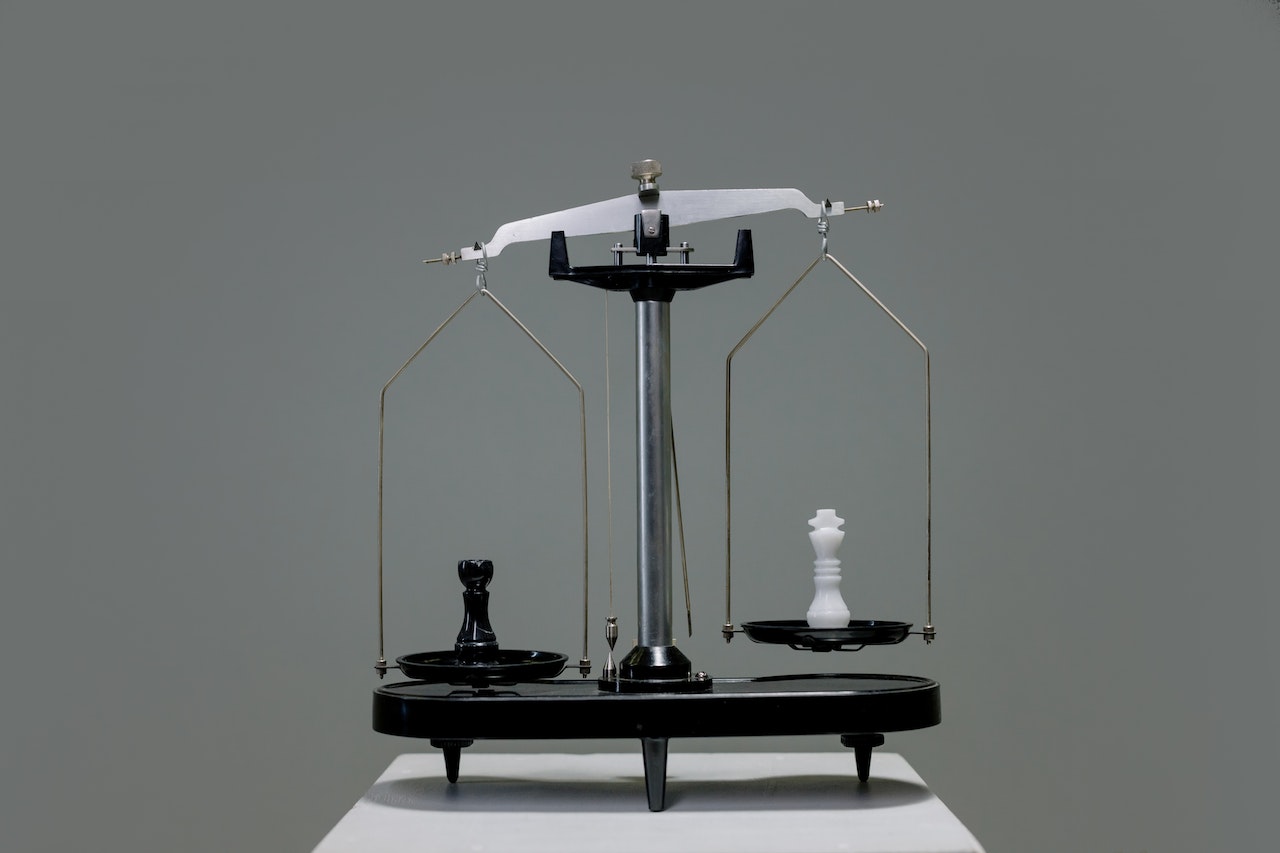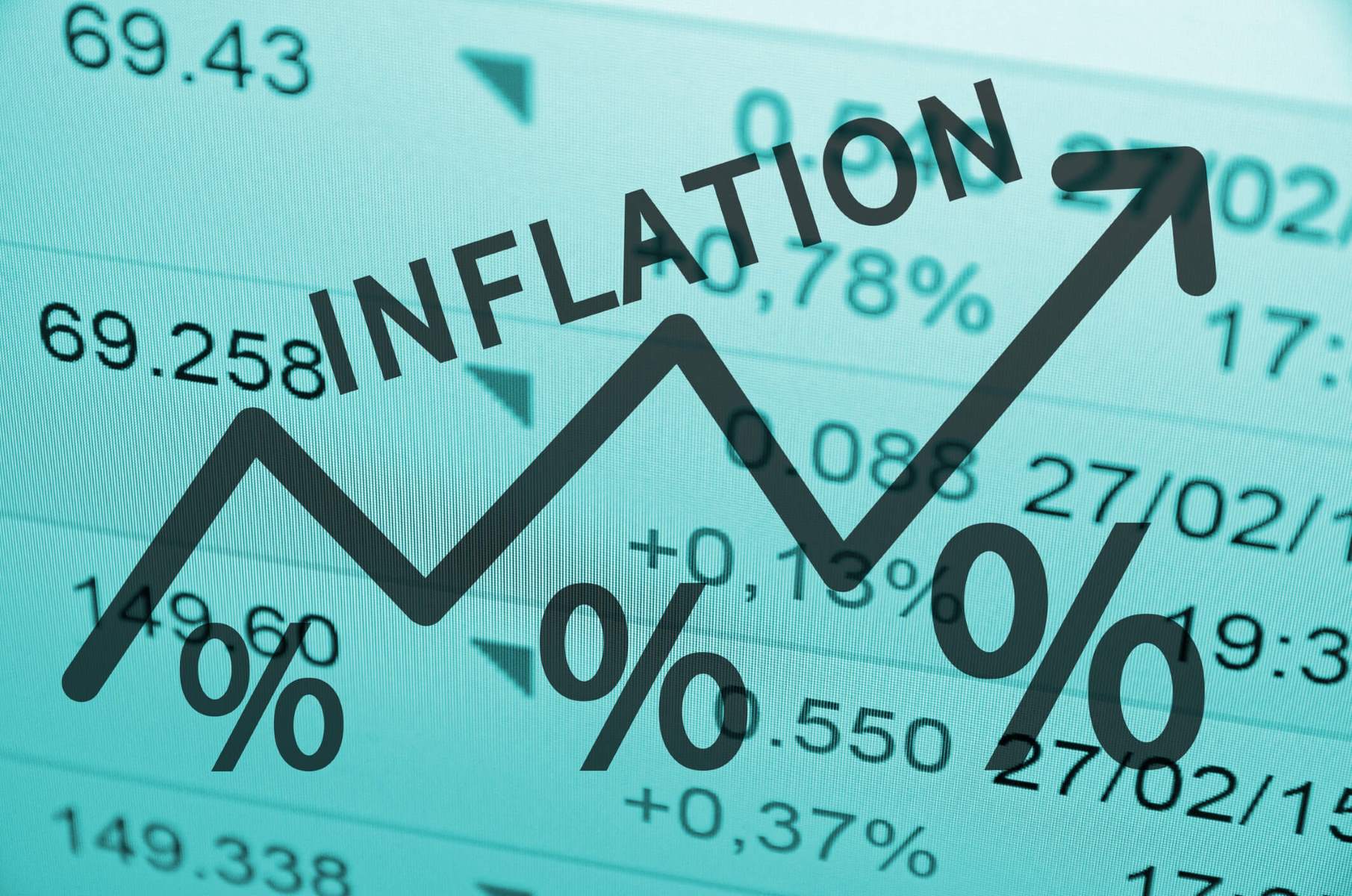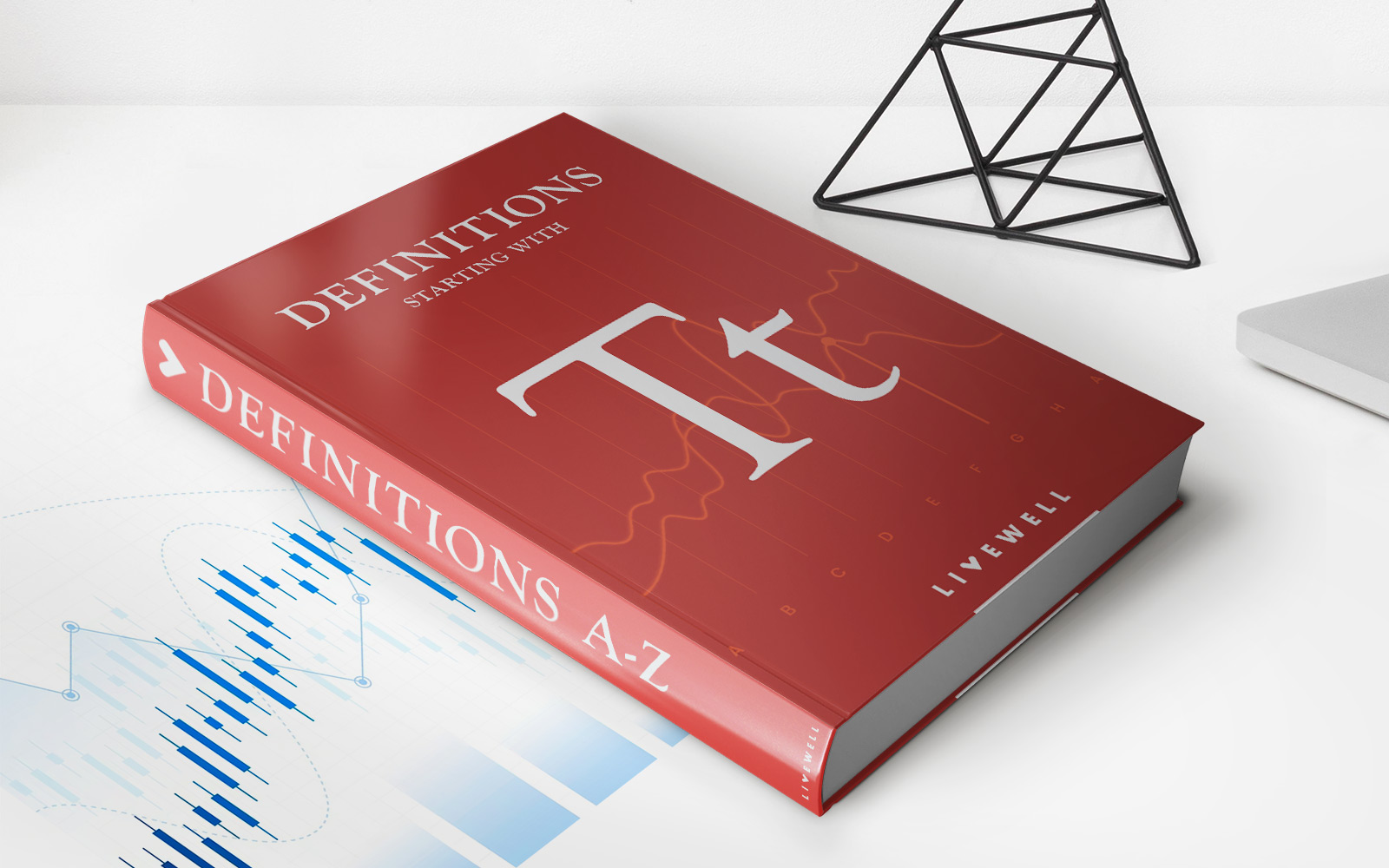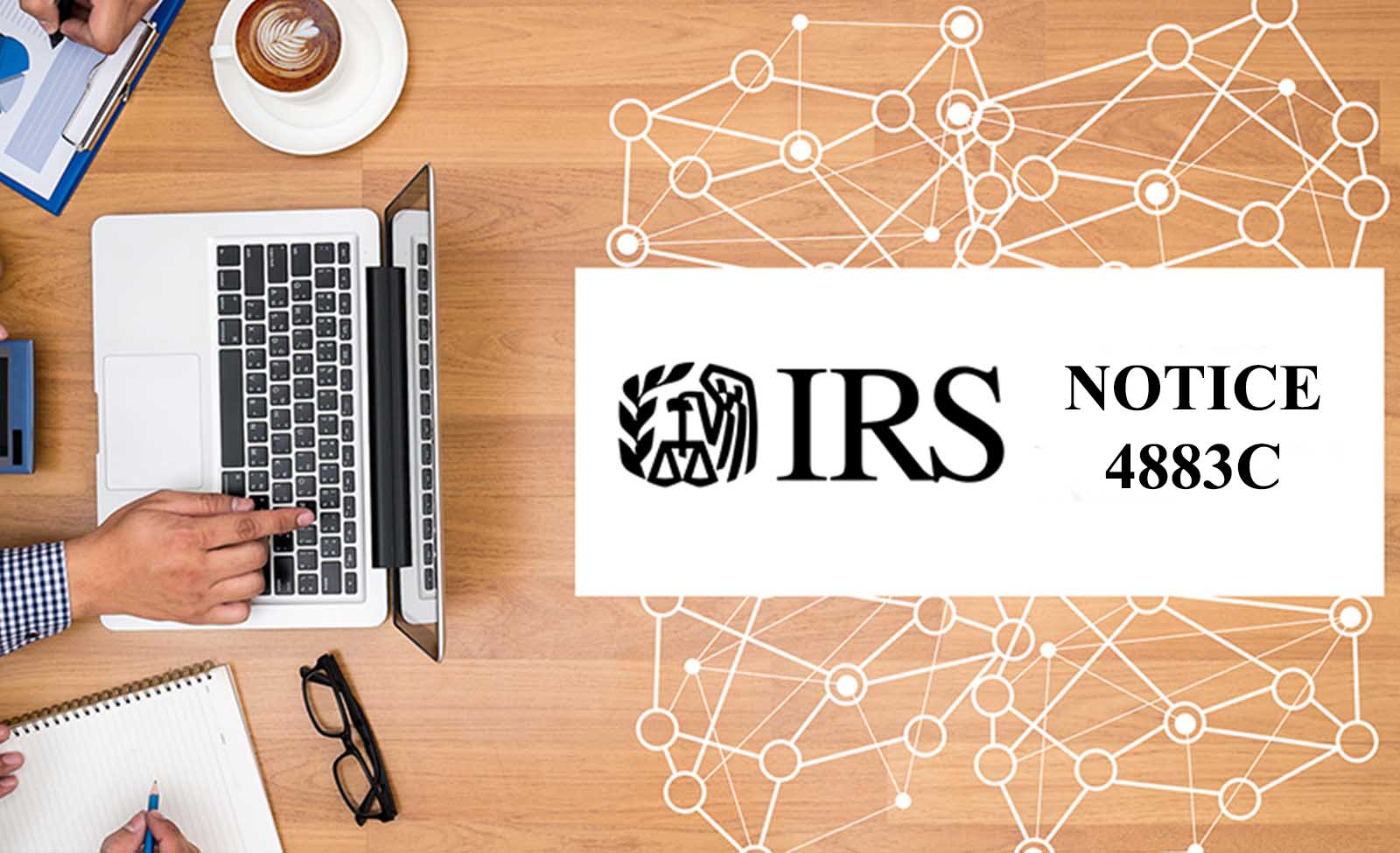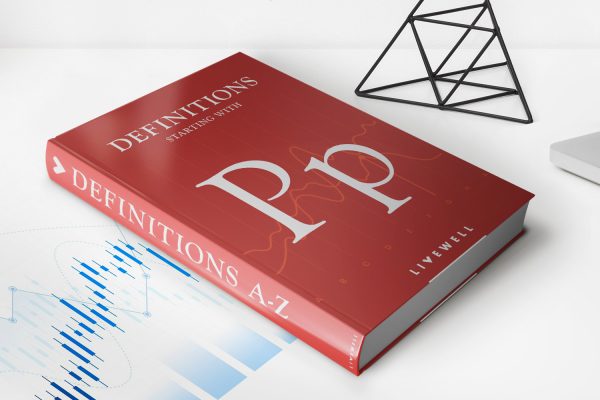

Finance
How Does Inflation Affect Pensions?
Published: October 19, 2023
Learn how inflation impacts pensions and discover strategies to safeguard your finances in this comprehensive guide on finance and retirement planning.
(Many of the links in this article redirect to a specific reviewed product. Your purchase of these products through affiliate links helps to generate commission for LiveWell, at no extra cost. Learn more)
Table of Contents
Introduction
Welcome to our comprehensive guide on how inflation affects pensions. As an expert in the field, I will provide you with a detailed understanding of inflation and its impact on pension funds. Inflation is a critical factor to consider when planning for retirement and ensuring long-term financial stability.
Before delving into the specifics, let’s clarify what inflation actually means. Inflation refers to the sustained increase in the general price level of goods and services in an economy over a period of time. It erodes the purchasing power of money, meaning that a dollar today will buy fewer goods and services in the future.
Now, you may be wondering how inflation relates to pensions. Well, pensions are a form of retirement income that individuals receive from their previous employers or through private plans. These pensions are designed to provide a steady stream of income during retirement to meet living expenses and maintain a certain standard of living.
However, the impact of inflation cannot be ignored when it comes to pensions. If inflation is not adequately considered, the value of pension payments over time can be significantly eroded, leading to a decrease in purchasing power and potential financial hardship for retirees.
In the following sections, we will explore in more detail the specific ways in which inflation affects pensions and discuss strategies to combat its effects. It’s important to fully understand the implications of inflation on our retirement funds and take proactive steps to mitigate its impact.
Definition of Inflation
Inflation is a term that is commonly used in economic discussions, but what does it really mean? In simple terms, inflation refers to the sustained increase in the general price level of goods and services in an economy over a period of time. It is typically measured using an inflation rate or index, such as the Consumer Price Index (CPI), which tracks the changes in the prices of a basket of goods and services commonly consumed by households.
Why does inflation occur? There are several factors that contribute to inflation, including:
- Demand-pull inflation: This occurs when aggregate demand exceeds the supply of goods and services, leading to an increase in prices. When consumers have more money to spend, they may be willing to pay higher prices, driving up inflation.
- Cost-push inflation: This type of inflation occurs when the cost of production for businesses increases, leading to higher prices for consumers. Factors such as rising wages, increased raw material costs, or higher taxes can contribute to cost-push inflation.
- Monetary inflation: This type of inflation is a result of an increase in the money supply in an economy. When there is more money circulating in the economy, it can lead to higher prices as individuals and businesses compete for limited goods and services.
Inflation is generally measured as an annual percentage change in prices. For example, if the inflation rate is 2% in a given year, it means that the average price of goods and services has increased by 2% compared to the previous year.
It’s important to note that inflation can have both positive and negative effects on the economy. On one hand, moderate inflation can be a sign of a healthy and growing economy. It encourages spending and investment, as consumers and businesses anticipate rising prices in the future. On the other hand, high inflation can erode the purchasing power of individuals and businesses, leading to decreased consumer spending and economic instability.
Now that we have a better understanding of what inflation is and how it occurs, let’s explore its impact on pensions and why it is a crucial factor to consider when planning for retirement.
Impact of Inflation on Pensions
When it comes to pensions, inflation can have a significant impact on the value and purchasing power of the retirement income received. Let’s explore the key ways in which inflation affects pensions:
Decreased Purchasing Power: As prices of goods and services rise over time due to inflation, the purchasing power of the pension income diminishes. This means that retirees may find it increasingly difficult to maintain their desired standard of living as their expenses outpace their pension payments.
Effect on Fixed Income Pensions: Many pension plans offer fixed income payments, meaning that the amount received by retirees remains constant throughout their retirement years. While this may provide a sense of stability, it also leaves retirees vulnerable to the eroding effects of inflation. As the cost of living rises, the fixed income from pensions may not be sufficient to cover the increased expenses, leading to a decline in the overall quality of life.
Inflation-Adjusted Pensions: To combat the negative impact of inflation, some pension plans offer inflation-adjusted pensions. These pensions are designed to increase periodically to keep pace with rising prices. They are typically tied to an inflation index, such as the CPI, and are adjusted accordingly. Inflation-adjusted pensions can provide retirees with more financial security and help preserve the real value of their pension income over time.
Retirement Duration: Inflation’s impact on pensions becomes more significant for retirees with longer life expectancies. If a retiree lives for several decades after retiring, even a relatively low inflation rate can significantly erode the purchasing power of their pensions over time. It highlights the importance of considering inflation when calculating retirement savings and planning for the long term.
In summary, the impact of inflation on pensions cannot be underestimated. It has the potential to significantly diminish the purchasing power and overall quality of life for retirees. Therefore, it’s crucial to incorporate strategies that protect against inflation’s effects on pensions and preserve the value of retirement income. In the next section, we will explore some strategies to combat inflation and safeguard the financial well-being of retirees.
Decreased Purchasing Power
One of the primary ways in which inflation affects pensions is by decreasing the purchasing power of retirees’ income. As prices of goods and services rise over time, the value of the same amount of money diminishes. This means that retirees may find it increasingly challenging to maintain their desired standard of living as their expenses outpace their pension payments.
To illustrate the impact of decreased purchasing power, let’s consider a hypothetical example. Imagine that a retiree receives a monthly pension payment of $2,000. If the inflation rate is 2% per year, after ten years, the cost of goods and services would have increased by approximately 22%, assuming a compounded effect. This means that the retiree would need $2,440 to purchase the same goods and services they would have purchased with $2,000 at the start of their retirement.
As time goes on, the erosion of purchasing power becomes more apparent. The retiree may find themselves having to allocate a larger portion of their pension income towards essential expenses such as housing, healthcare, and food. This can lead to a decrease in discretionary spending and a reduced ability to enjoy retirement fully.
To mitigate the impact of decreased purchasing power, it is important for retirees to plan for inflation in their retirement strategy. Here are some strategies that can help:
- Invest in Inflation-Protected Assets: Consider diversifying your investment portfolio to include inflation-protected assets such as Treasury Inflation-Protected Securities (TIPS) or inflation-adjusted annuities. These investments are designed to provide returns that keep pace with inflation, helping protect the purchasing power of your pension income.
- Review and Adjust Your Budget: Regularly review your budget and make adjustments to account for rising prices. Cut back on non-essential expenses and prioritize essential items to ensure that your pension income can cover your basic needs despite inflation.
- Consider Part-Time Work: If feasible, consider taking on part-time work during retirement to supplement your pension income. This can help bridge the gap between your pension payments and the increasing cost of living.
- Stay Informed: Stay up to date with economic news and trends, particularly regarding inflation projections. This information can help you make informed decisions about your retirement investments and adjust your financial strategy as needed.
By implementing these strategies, retirees can better navigate the challenges posed by decreased purchasing power due to inflation. It is crucial to be proactive in preparing for inflation’s effects on pensions to ensure a comfortable and financially secure retirement.
Effect on Fixed Income Pensions
A significant number of pension plans offer fixed income payments, wherein the amount retirees receive remains constant throughout their retirement years. While this may provide a sense of stability, it also leaves retirees vulnerable to the eroding effects of inflation.
Fixed income pensions can become a concern when inflation rises because the cost of living increases, but the pension payment remains the same. As a result, the purchasing power of the fixed income diminishes over time. This means that retirees may struggle to afford the same goods and services they could initially purchase with their pension payments.
To understand the impact of inflation on fixed income pensions, consider the following example. Let’s say a retiree receives a fixed pension income of $3,000 per month. If the inflation rate is 3% per year, after five years, the cost of goods and services would have increased by roughly 16%, assuming compounded effects. In this scenario, the retiree would need $3,480 to maintain the same standard of living they had at the beginning of their retirement.
As time goes on, the disparity between the fixed pension income and rising expenses can become more significant. Retirees may have to make difficult choices or sacrifices to make ends meet, such as cutting back on discretionary spending or forgoing certain essential expenses.
So, what can be done to mitigate the negative impact of inflation on fixed income pensions?
- Inflation Adjustment Provision: Some pension plans include an inflation adjustment provision, also known as a cost-of-living adjustment (COLA). This provision allows the pension payments to be adjusted periodically to keep pace with inflation. If your pension plan offers this feature, it can help preserve the purchasing power of your income in the face of rising prices.
- Supplement with Other Income Sources: Consider diversifying your income sources by generating additional income during retirement. This can be achieved through part-time work, passive income streams, or even starting a small business. By supplementing your fixed pension income, you can better cope with the rising cost of living.
- Invest for Growth: If you have the financial means and risk tolerance, consider investing a portion of your retirement savings in growth-oriented assets such as stocks or mutual funds. While these investments come with higher risk, they have the potential to outpace inflation and provide you with more financial flexibility in retirement.
- Regularly Review and Adjust Your Budget: Keep a close eye on your expenses and adjust your budget as necessary. Prioritize essential expenses and look for ways to cut costs in non-essential areas to compensate for the diminishing purchasing power of your fixed pension income.
By implementing these strategies, retirees with fixed income pensions can better protect themselves against the negative effects of inflation. It is crucial to be proactive and take steps to ensure that your retirement income keeps up with the rising cost of living.
Inflation-Adjusted Pensions
To mitigate the negative impact of inflation on pensions, some pension plans offer inflation-adjusted pensions. These pensions are designed to increase periodically to keep pace with rising prices. They are typically tied to an inflation index, such as the Consumer Price Index (CPI), and are adjusted accordingly to maintain the real value of the pension income.
Inflation-adjusted pensions provide retirees with more financial security and stability in the face of inflation. Here’s how they work:
Indexing: Pension plans that offer inflation-adjusted pensions use indexing to ensure that the pension payments keep up with the cost of living. Typically, an inflation index, such as the CPI, is used as a reference point. The pension payments are adjusted based on the changes in the index, ensuring that the retirees receive a higher income to compensate for the increased prices.
Frequency of Adjustments: The frequency of adjustments varies depending on the pension plan. Some plans adjust the pensions annually, while others may have adjustments every few years. The frequency of adjustments is determined by factors such as the pension fund’s financial health, inflation rates, and the terms of the pension plan.
Calculation Method: The calculation of the pension adjustment is typically based on the percentage increase in the chosen inflation index. For example, if the inflation index increases by 2% in a given year, the pension payment would also increase by 2% to maintain the real value of the income.
Having an inflation-adjusted pension can provide retirees with peace of mind knowing that their income will keep pace with rising prices. It helps to protect the purchasing power of their retirement savings and ensures that they can maintain their desired standard of living throughout their retirement years.
However, it’s important to note that not all pension plans offer inflation-adjusted pensions. Some plans may provide a fixed income that does not change over time. In such cases, it becomes even more crucial for retirees to consider other strategies to combat the effects of inflation on their retirement income, such as proper investment allocation, budgeting, and supplemental income sources.
Ultimately, whether your pension is inflation-adjusted or not, it’s essential to plan for inflation when saving for retirement. By considering inflation and taking appropriate steps to protect the purchasing power of your pension income, you can enjoy a financially secure and comfortable retirement.
Strategies to Combat Inflation’s Effects on Pensions
Inflation can have a significant impact on pensions, eroding the purchasing power of retirement income over time. However, there are several strategies that retirees can employ to combat these effects and protect their financial well-being. Here are some effective strategies to consider:
Invest in Inflation-Protected Assets: Consider diversifying your investment portfolio to include assets specifically designed to protect against inflation. Treasury Inflation-Protected Securities (TIPS) and inflation-adjusted annuities are examples of such assets. These investments provide returns that are adjusted based on changes in inflation, helping to maintain the value of your pension income.
Utilize a Balanced Investment Approach: Adopting a balanced investment approach can help you combat inflation’s effects on your pension. By diversifying your investments across different asset classes, such as stocks, bonds, and real estate, you can potentially benefit from the growth and income generated by these assets. Stocks, for instance, have historically outperformed inflation over the long term.
Consider Rebalancing Investments: Regularly review and rebalance your investment portfolio to ensure that it aligns with your risk tolerance and financial goals. As you near retirement, it may be prudent to shift your allocation towards more stable and income-generating assets to safeguard against inflation’s effects on your pension income.
Stay Informed and Adjust Your Strategy: Keep yourself informed about economic trends and projections, particularly inflation expectations. Stay updated on government policy changes and economic indicators that may impact inflation rates. This will enable you to make informed decisions and adjust your investment and retirement strategies accordingly.
Review and Adjust Your Budget: Regularly review and adjust your budget to accommodate the impact of inflation on your expenses. Prioritize essential expenses and identify areas where you can cut back to compensate for rising prices. Maintaining a realistic and flexible budget can help ensure that your pension income can sustain your lifestyle despite inflation.
Consider Supplemental Income Sources: Explore opportunities to generate additional income during retirement. This can include part-time work, freelancing, or monetizing a hobby or skill. Supplemental income sources can help offset the effects of inflation and provide you with greater financial stability.
Remember, each individual’s financial situation is unique, and it’s important to consult with a financial advisor or professional to create a personalized strategy that aligns with your goals and risk tolerance.
By implementing these strategies, retirees can mitigate the impact of inflation on their pensions and maintain their financial stability. To ensure a comfortable and secure retirement, it’s crucial to be proactive and take steps to protect your pension income from the eroding effects of inflation.
Conclusion
Inflation is a critical factor to consider when planning for retirement and ensuring long-term financial stability. Its impact on pensions cannot be underestimated. It can decrease the purchasing power of pension income, particularly in the case of fixed income pensions, which do not adjust for inflation. However, there are strategies that retirees can employ to combat the effects of inflation on their pensions.
By investing in inflation-protected assets, utilizing a balanced investment approach, and staying informed about economic trends, retirees can better protect their pension income from the eroding effects of inflation. Regularly reviewing and adjusting budgets, considering supplemental income sources, and exploring inflation-adjusted pension options are other strategies that can help mitigate the impact of inflation.
It’s important for retirees to be proactive in planning and preparing for inflation when saving for retirement. By considering the impact of inflation and implementing appropriate strategies, individuals can enjoy a financially secure and comfortable retirement, with their pension income keeping pace with the rising cost of living.
However, it’s crucial to remember that each person’s financial situation is unique, and it’s advisable to consult with a financial advisor or professional to develop a personalized strategy that aligns with individual goals and risk tolerance.
In conclusion, understanding the impact of inflation on pensions is crucial for retirees and those planning for retirement. By taking proactive steps to protect against inflation’s effects, individuals can ensure the preservation of their purchasing power and maintain a stable financial future throughout their retirement years.



